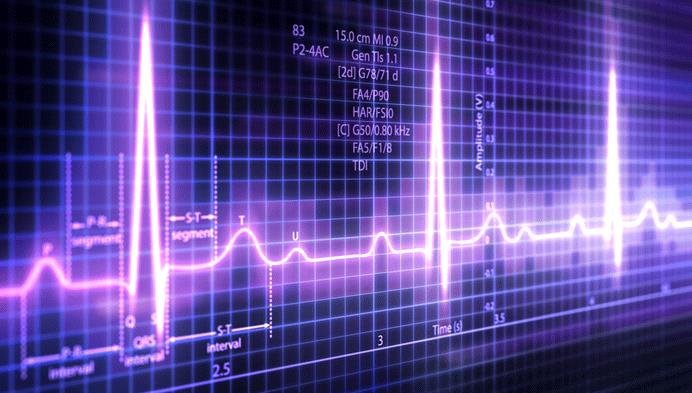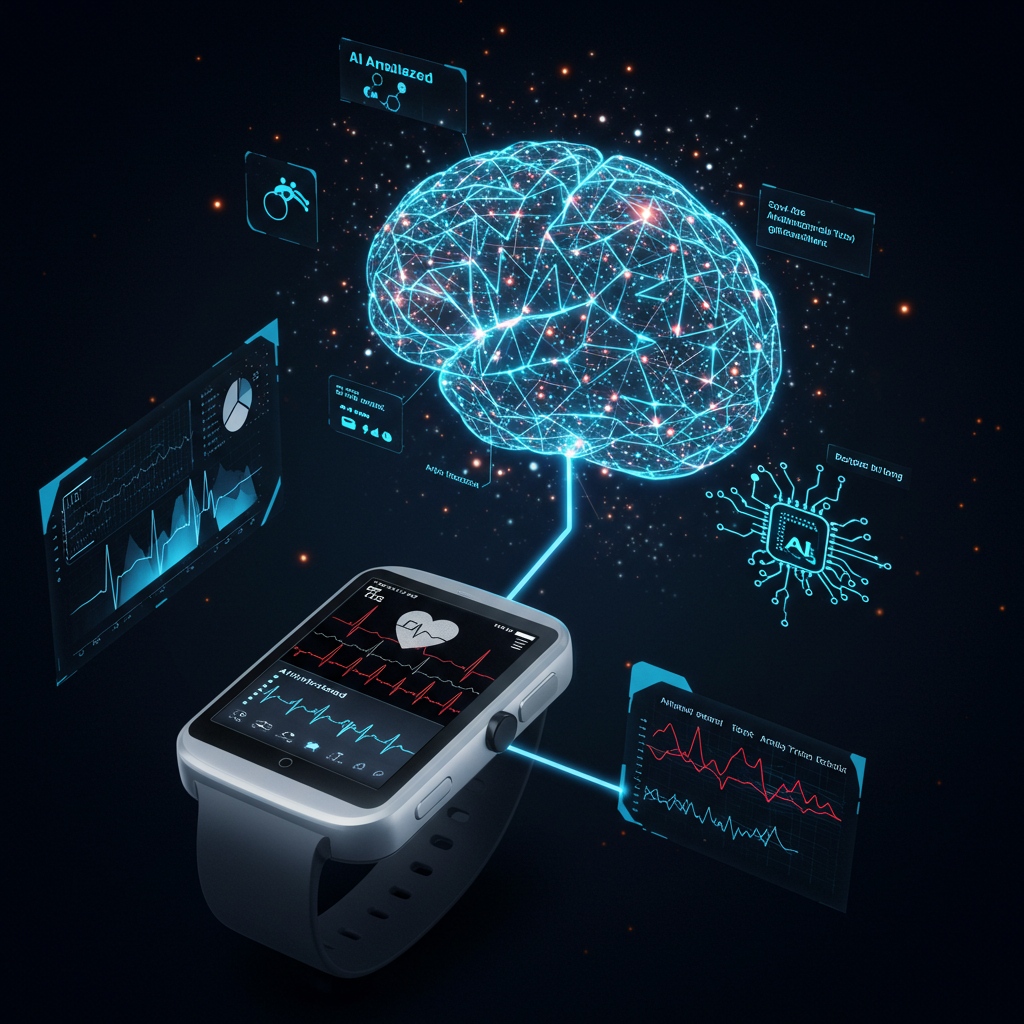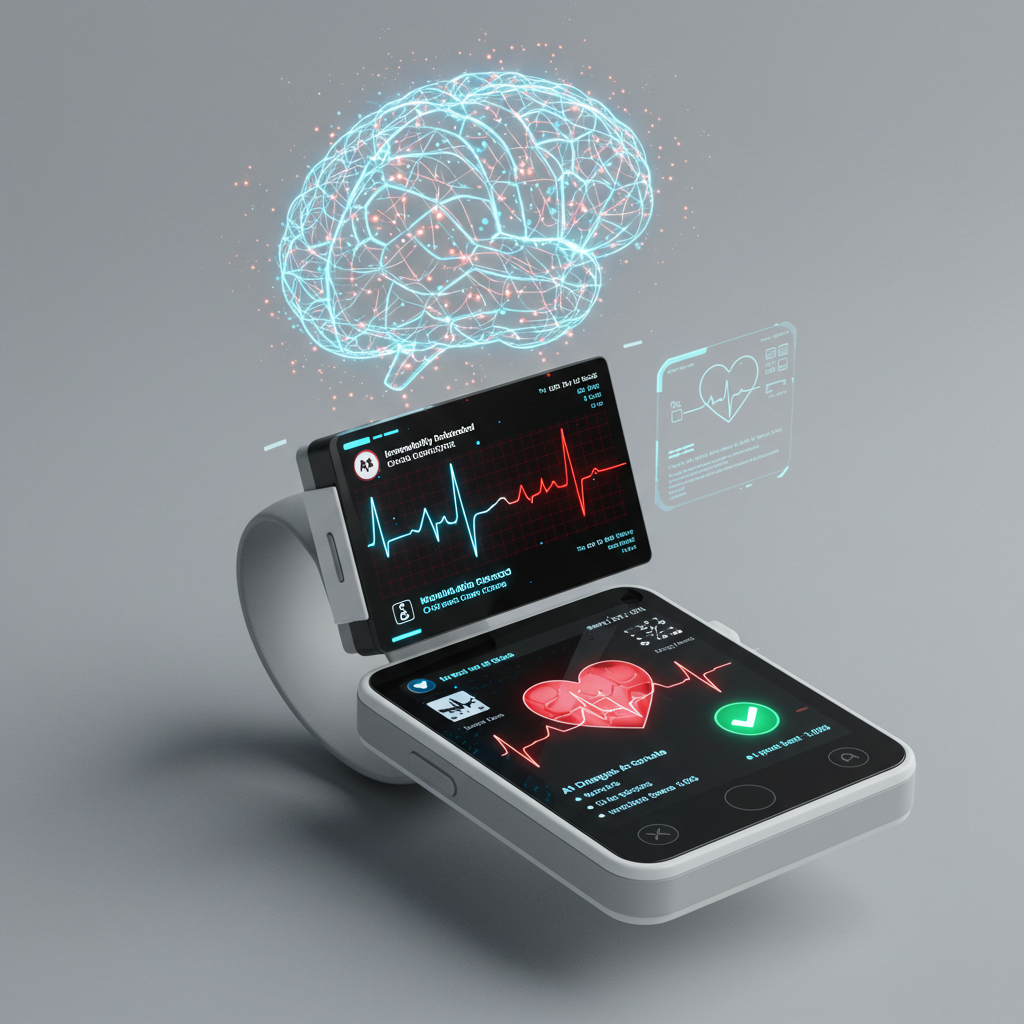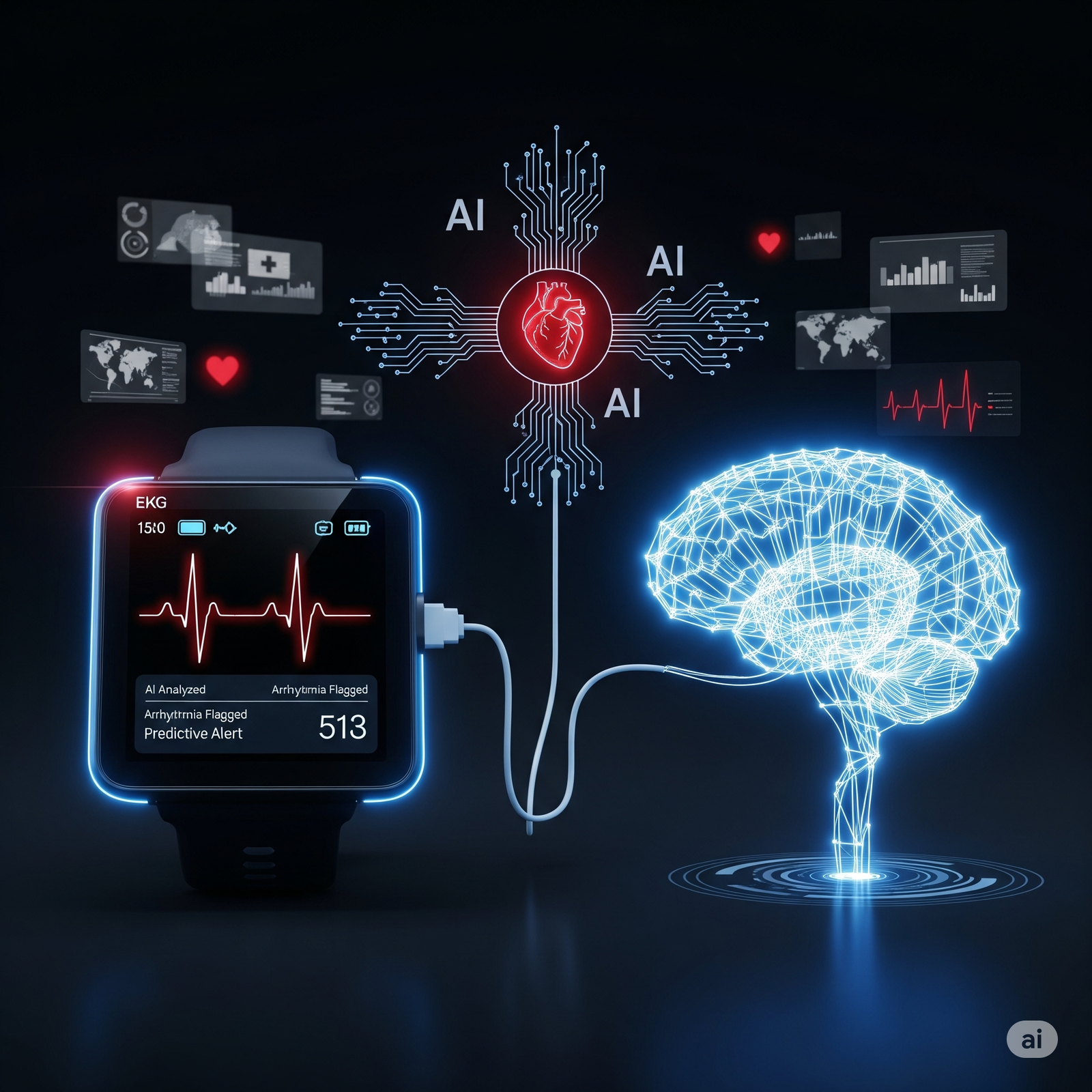Cardiovascular disease remains the world’s major cause of death, and timely, accurate monitoring has never been more critical. With so much at stake, relying solely on traditional methods can fall short.
That’s where Artificial Intelligence (AI) steps in. By enhancing how we use tools like the EKG Monitor, AI is rewriting the rules of cardiac care, from early detection to in-depth diagnosis. In this blog, we will explain how AI makes modern heart monitoring systems smarter, faster, and more reliable. They help both patients and medical professionals stay one step ahead. Heart conditions are one of the biggest health challenges today.
Artificial Intelligence (AI) is not just helping detect cardiac issues but improving the way we diagnose heart problems. Let’s explore!
What Makes AI Different in EKG Monitoring?
The standard EKG Heart Monitor records your heart’s electrical signals. Doctors then review this data to find irregular rhythms. But this manual process can lead to delays or even missed details.
AI changes the game by:
- Analyzing data instantly: AI systems can process complex heart signals in real-time, eliminating the need to wait for a specialist to review the data manually.
- Spotting patterns even experts might miss: These systems can detect minute irregularities in heart rhythms, increasing the chances of catching conditions at an earlier stage.
- Learning from thousands of patient records: AI continually improves by learning from vast datasets, allowing it to make better predictions with each fresh case.
Thanks to AI, we now get faster, more accurate readings, saving lives and time. In the next section, we’ll show how this helps in real-time situations.

Faster Detection with Real-Time AI Analysis
The AI-powered EKG Monitor doesn’t wait. It works as the heart beats, monitoring for signs of trouble instantly.
Benefits include:
- Instant alerts to doctors: If something unusual is detected, the system notifies medical professionals immediately, allowing for fast intervention.
- Continuous monitoring 24/7: Unlike human staff, AI systems don’t sleep—they monitor patient vitals around the clock without interruptions.
- Quick response to life-threatening changes: By detecting critical conditions like arrhythmias in real-time, an AI-based heart monitor at home can help prevent complications before they escalate.
This real-time ability makes it easier for hospitals and clinics to catch issues before they become emergencies. But AI isn’t just for hospitals; it’s now in homes too.
Smarter Monitoring at Home
Patients can now use smart monitors from home. Whether you use a home heart monitor, AI helps you stay in control.
AI-enabled devices can:
- Sync with mobile apps: These apps offer a simple dashboard to view heart activity, making health data accessible and easy to understand.
- Send reports to your doctor automatically: AI systems directly transmit your results to your healthcare team, so you don’t need to share your data manually.
- Track your heart even while you sleep: AI monitors your heart rate and rhythm overnight, giving your doctor a complete picture of your heart health.
This level of support keeps patients safe, especially those with ongoing heart conditions. And it is easy to use.

Cutting Down on Diagnostic Errors
Doctors do amazing work, but even they can miss subtle signs. That’s why AI is a perfect partner for medical professionals using the EKG Monitor.
AI helps by:
- Double-checking results instantly: It provides a real-time second opinion, adding a safety net to the diagnostic process.
- Reducing missed or wrong diagnoses: By catching patterns and anomalies consistently, AI helps minimize human error.
- Supporting doctors, not replacing them: AI works as an assistant, enhancing clinical decision-making without removing the expert from the process.
This creates a safety net where patients get the best of both worlds: human care and machine precision. Let’s see how AI keeps getting better gradually.
Learning and Improving With Every Heartbeat
AI doesn’t just follow rules; it learns. The more heart data it processes, the smarter it becomes. That’s how the EKG Monitor is evolving into an intelligent diagnostic tool.
This allows AI to:
- Identify rare heart issues: It can recognize uncommon conditions that might escape typical screening methods.
- Get better at predicting risks: With ongoing exposure to new data, AI refines its models to forecast problems even before symptoms appear.
- Adjust to your unique heart patterns: AI can customize its analysis to your specific health trends, offering more accurate personal insights.
Over time, your monitor becomes more personalized and precise. Now let’s look at how this helps doctors and healthcare teams.
Helping Doctors and Hospitals Work Smarter
AI tools in the EKG Monitor reduce the heavy workload for hospitals. That means less paperwork and more time with patients.
Medical teams benefit from:
- Faster patient triage: AI can quickly identify high-risk patients, helping emergency rooms prioritize care more effectively.
- Clearer data insights: Advanced visualizations and summaries assist doctors in understanding patient conditions at a glance.
- Fewer manual errors: Automating repetitive tasks reduces the chances of mistakes in charting or interpreting EKG results.
This makes healthcare more efficient. It also helps doctors focus on treatment instead of sifting through hours of data.

Empowering Patients with Knowledge and Control
One of the best parts about AI in the EKG Monitor is that it gives power back to patients. You get clear updates about your heart—and that’s empowering.
Smart monitors help you:
- Understand your health better: Easy-to-read dashboards show trends and changes in your heart activity from time to time.
- Act on early warning signs: Immediate feedback helps you take action or contact your doctor before symptoms worsen.
- Stay engaged with your care plan: Having real-time data encourages patients to stick to medications and lifestyle changes.
This means better outcomes and peace of mind. Now let’s tie everything together and look at what the future holds.
Expanding Accessibility Through AI
AI is also leveling the playing field in cardiac care by making wearable ecg monitor technology more accessible in underserved and rural areas. Remote monitoring tools powered by AI enable patients to receive hospital-grade diagnostics without having to travel.
This allows healthcare systems to reach broader populations and provide consistent follow-up care. As connectivity and mobile health improve, more people will gain access to life-saving heart monitoring, no matter where they live.
AI is transforming how we use an EKG Monitor. It’s not just about recording data, but it’s about understanding it, using it, and acting on it faster. This technology is making every heart monitor more reliable and life-saving. The shift from basic detection to smart diagnosis is here, and it’s making healthcare better for everyone.
Choose devices that give you real-time insights, helping you feel confident and in control of your heart health every day. Your heart deserves the best; let AI guide the way to smarter care.


